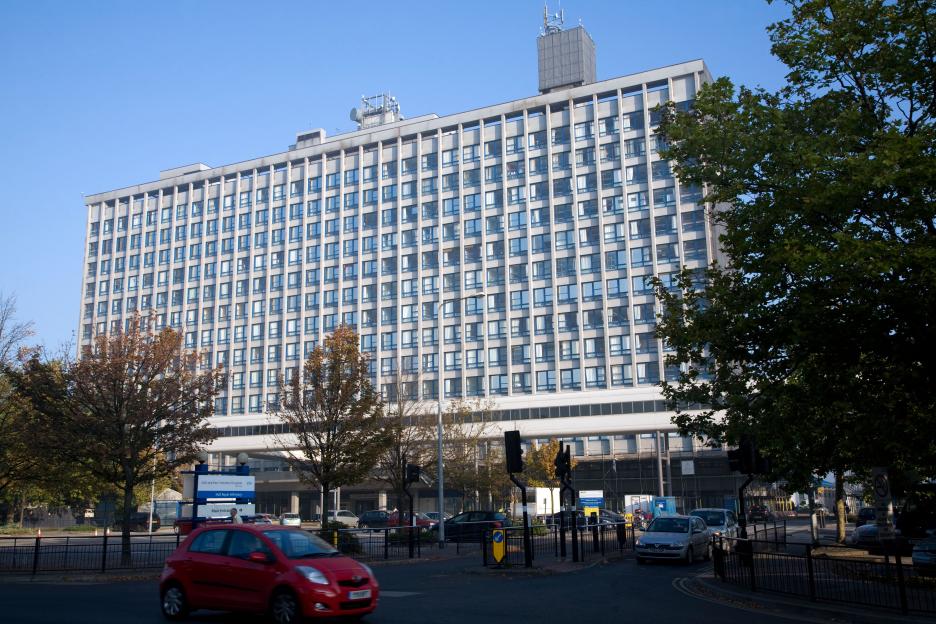THE NHS shingles jab could slash the risk of having a heart attack or stroke by a fifth, research suggests.
All over-70s and some over-65s in England are already eligible for the free vaccine, and it will next week expand to all adults with a weakened immune system.
 The NHS shingles jab could slash risk of having a heart attack or stroke by a FIFTH
The NHS shingles jab could slash risk of having a heart attack or stroke by a FIFTH
Shingles is a skin infection similar to chickenpox which often strikes in old age and can be crippling.
Research has suggested preventing it can benefit the heart so vaccine-maker GSK analysed the results of nine studies.
It found that vaccination “significantly” reduced the risk of someone later having a heart attack or stroke .
If vaccinated under the age of 50, the danger was lowered by an average of 18 per cent, or if over 50 it was by 16 per cent.
Study author Dr Charles Williams presented the study at the conference of the European Society of Cardiology.
He said: “We found that vaccination against herpes zoster was associated with a lower risk of cardiovascular events.”
About a third of adults develop shingles, which triggers a painful rash similar to chickenpox or cold sores.
It is caused by the varicella-zoster herpes virus, the same as chickenpox.
Mild cases may not need treatment but people often need medication to fight it off.
It can take a month or longer to heal and pain can linger for weeks or months after the blisters have cleared up.
How to reduce your risk of heart attacks and stroke
You can reduce your risk of heart attack and stroke with many of the same methods.
Heart attacks and strokes, although affecting different organs of the body, are both what we call cardiovascular events.
Both arise from similar underlying conditions, such as atherosclerosis —a buildup of fatty deposits in the arteries.
According to the American Heart Association, the risk factors for heart attacks and strokes are largely the same: high blood pressure, high cholesterol, smoking, obesity, physical inactivity and diabetes.
Therefore, addressing these risk factors can simultaneously reduce the risk of both conditions.
Here are ways you can prevent the two:
Healthy diet
- More fruit and veg: The DASH, which emphasises fruit, vegetables, whole grains and lean proteins, has been shown to reduce blood pressure and improve heart health.
- Less fats: Too much saturated and trans fats can raise cholesterol levels and increase the risk of atherosclerosis. Go for healthier fats like those found in olive oil, nuts, and avocados.
- Limit salt: High salt intake is linked to high blood pressure, a major risk factor for both heart attack and stroke. The NHS recommends no more than 6g of salt per day for adults.
- Fibre: Foods high in soluble fibre, such as oats and beans, can help lower cholesterol levels.
Exercise
Walking, running, cycling, swimming – whatever you like, do it!
Aerobic exercise can strengthen the heart and improve circulation.
The NHS advises at least 150 minutes of moderate-intensity aerobic activity or 75 minutes of vigorous-intensity activity each week.
Strength training exercises can help control weight, improve cholesterol levels, and reduce blood pressure. It is recommended twice a week by the NHS.
Manage blood pressure
Healthy diet and exercise can help keep your blood pressure in check.
But it is worth monitoring it yourself after the age of 40, at least, when the NHS invites adults for a check-up every five years.
High blood pressure often has no symptoms but significantly increases the risk of heart attack and stroke.
Quit smoking
One of the best ways to quit smoking is to use resources provided by NHS Smokefree. Support groups, medications, and other tools to help quit smoking such as vapes could be what you need to kick the habit for good – and it’s free.
Limit booze
Excessive alcohol consumption can increase blood pressure and contribute to weight gain, which can snowball and become a heart health risk.
The NHS recommends not regularly drinking more than 14 units of alcohol per week.
Patients may also suffer nerve damage, scarring, muscle weakness or sight problems.
Professor Bryan Williams, chief medical officer at the British Heart Foundation, said: “Shingles can cause inflammation in the body, and that inflammation is a culprit in many heart conditions which can lead to heart attacks and strokes.
“By preventing shingles, vaccination could therefore be protective.
“More research is needed as this analysis cannot demonstrate cause and effect.
“More evidence will be needed before the shingles vaccine can be recommended for a wider age group.”







